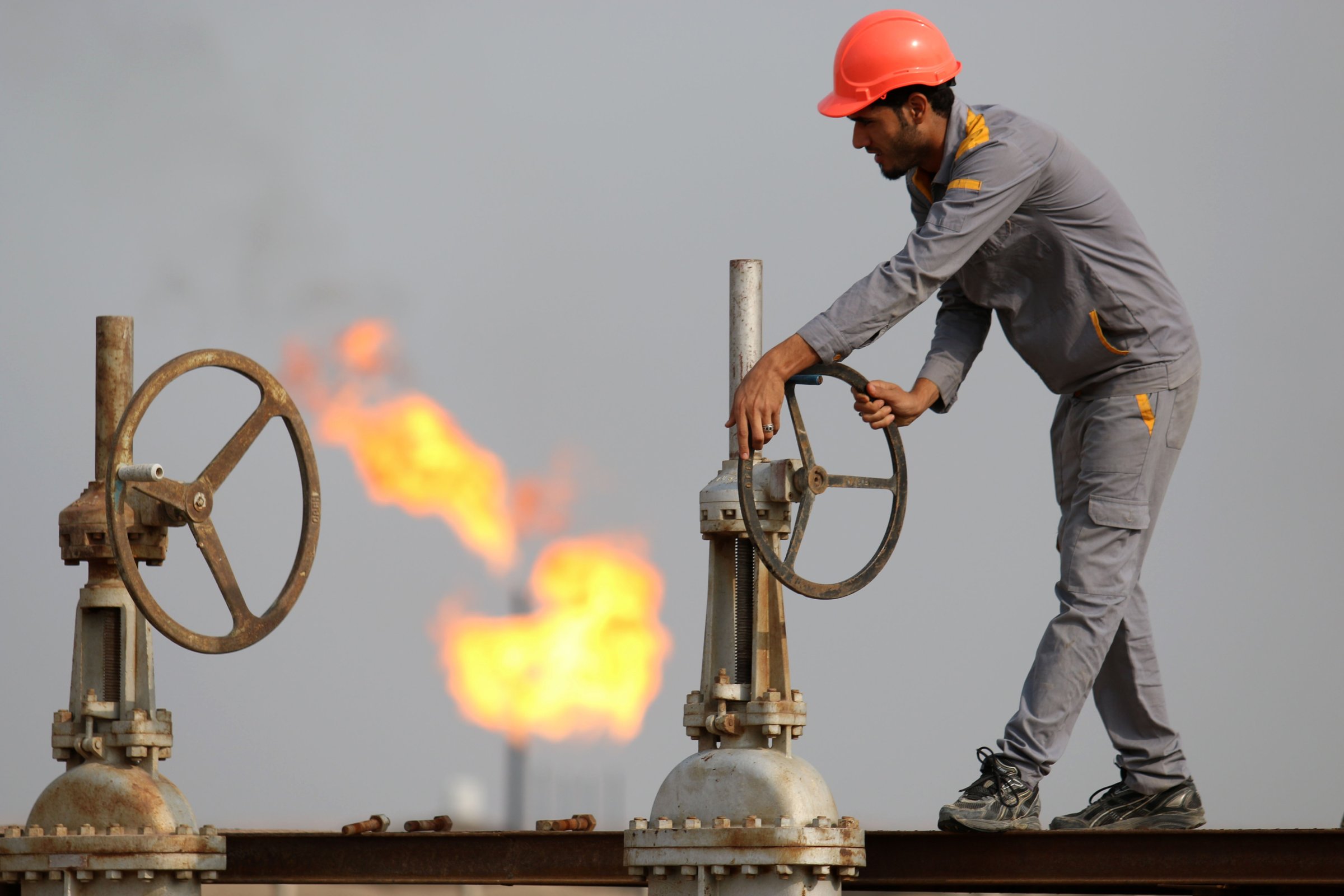
As Iraqi exports from the southern coast reach a monthly record high and the government is trying to lure in new investment on the border with Iran, all is certainly not well—and oil-rich Kirkuk in the north is becoming a violent flashpoint.
On the surface, things are looking up for Iraq. It never wanted to join an output freeze, and in April it posted a record level of oil exports, adding further downward pressure to oil prices.
According to data provided by Reuters, Iraq’s averaged 3.43 million barrels of oil per day from its south in the first 24 days of April. In November last year, it managed 3.37 million bpd.
Last year, Iraq was the fastest growing oil supplier in OPEC, and this year it is likely to retain that title, even if growth is a bit slower, hindered by supermajor spending cuts and the ongoing conflict with the Islamic State (ISIS).
But that’s the south, and while oil exports are creeping back up to normal in the north as well, trouble is brewing and Kirkuk is the frontline in another battle for control of Iraqi oil wealth.
Oilprice.com: Expert Commentary: Oil Market Analysis and The Week Ahead
Kirkuk is in a tricky spot. It holds large and productive oil fields, but has been under threat from ISIS for two years and lies in disputed territory between the Iraqi central government and the Kurdish Regional Government (KRG), and control over Kirkuk is raising tensions between the two sides.
In March, the authorities of the KRG offered up official support for plans by the local government of Kirkuk to create their own oil company, detached from the Iraqi state-run North Oil Company (NOC).
Kirkuk and the Kurds are falling back on an Iraqi constitutional legal clause that apparently allows for the establishment of a separate oil company if local production exceeds 100,000 bpd – Kirkuk’s output has already exceeded 150,000 bpd. The local government of Kirkuk wants more control over its own oil, and the Kurds have agreed to deposit $10 million a month into a Kirkuk account to realize this new deal. This is the Kurds’ second step into Kirkuk—the first was the necessity of its forces to hold back ISIS, the second will be through the Kirkuk Oil Co.
Oilprice.com: What Iron Ore Futures Tell Us About Oil Prices
Baghdad, of course, doesn’t like it. It has already punished the Kurds for their truculence by shutting off Iraqi national exports through the Kirkuk-Ceyhan pipeline, and since then it has started arresting NOC officials, ostensibly for corruption.
According to the Iraq Oil Report, nearly two dozen current and former NOC officials have been implicated and/or arrested so far—and they’re all apparently from Kirkuk. They face charges that they used a fake company to cheat the Iraqi government out of millions of dollars.
At the same time, violent unrest between Kurds and Shi’ites in the disputed northern territories is being stirred up, and Baghdad could be behind it. This sudden spurt of ethnic violence could work to the benefit of ISIS. Here, Baghdad is playing a very dangerous game. Despite rising oil production, Baghdad could be overplaying its hand.
General Electric Oil & Gas (GE Oil & Gas) signed an agreement with the Iraqi Ministry of Oil to enhance the “operational efficiency” of the Ministry’s energy assets. They’ll also come up with a solution to reduce gas flaring in Iraqi oil fields and put it to better use for the country’s power generation. GE’s a veteran in Iraq, but it will be its oil and gas segment’s first foray into the country.
Oilprice.com: The Real Reason Saudi Arabia Killed Doha
Baghdad’s optimism extends to its border with Iran, where there are rumors that the two countries are reviving plans to jointly develop three fields in three provinces—Basra, Missan and Diyala.
But this comes at the same time that Iran is talking to the Kurds about a potential new pipeline route that would transport Kurdish oil to Iran, and also secure Iranian gas for the Kurds. It’s a deal that would give the Kurds a stable alternative to the Kirkuk-Ceyhan pipeline for its unilateral exports.
At this point, while ISIS remains a destabilizing scourge for Iraq and tensions between Baghdad and Kurdistan are rising, Iran is the trump card that can patch things up between the two sides. Iran’s joint development with the Iraqi Oil Ministry won’t come without its tradeoffs, and in the name of stability, that will probably include some sort of deal for the Kurds.
This article originally appeared on Oilprice.com
More Must-Reads from TIME
- Cybersecurity Experts Are Sounding the Alarm on DOGE
- Meet the 2025 Women of the Year
- The Harsh Truth About Disability Inclusion
- Why Do More Young Adults Have Cancer?
- Colman Domingo Leads With Radical Love
- How to Get Better at Doing Things Alone
- Michelle Zauner Stares Down the Darkness
Contact us at letters@time.com



